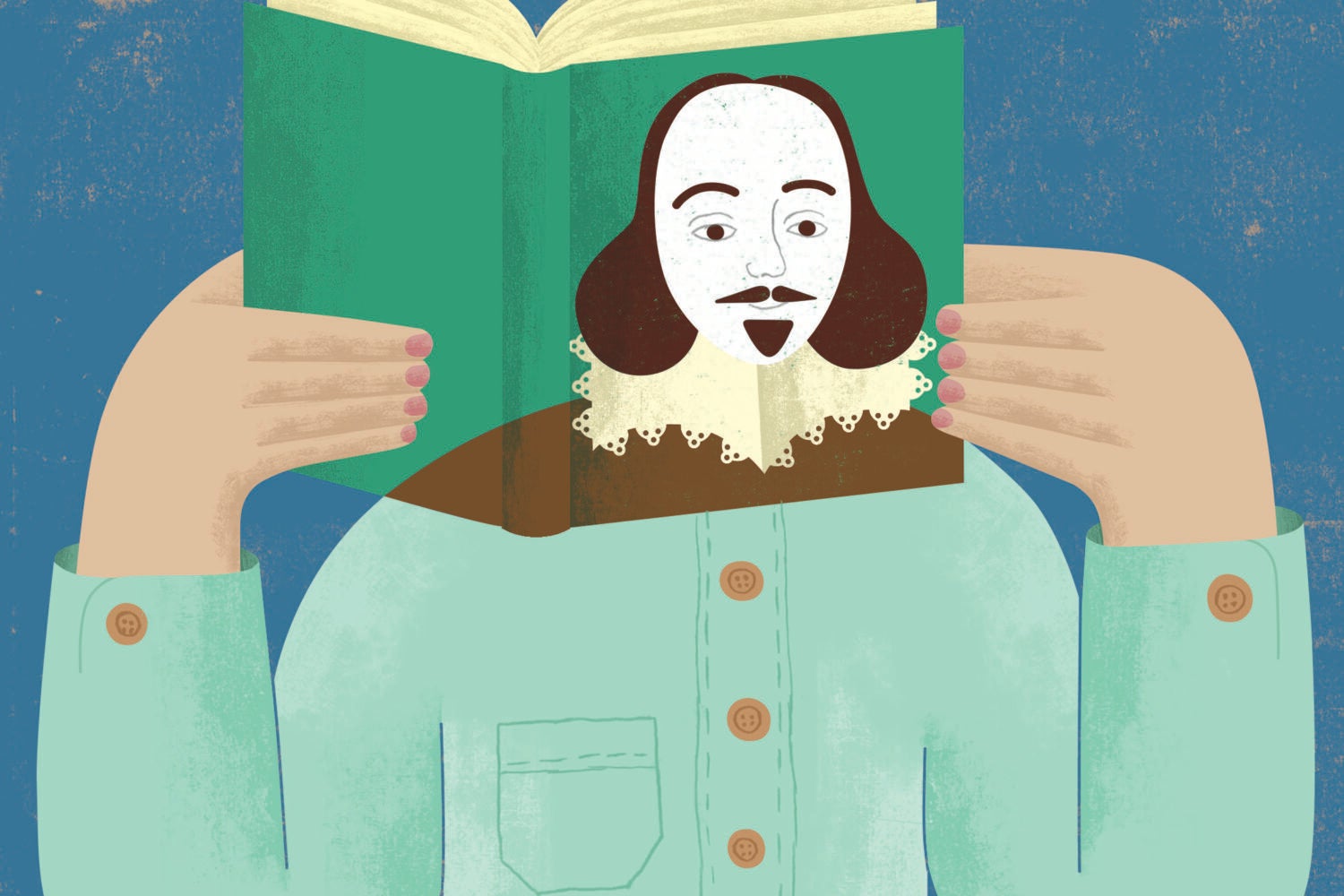While wrapping up a reading group that focused on a selection of William Shakespeare’s plays in the spring of 2024, Matthew Stephenson ’03 and Susannah Barton Tobin ’04 asked their students for feedback.
“One said she thought studying the plays makes us better people, and that will end up making us better lawyers,” recalled Stephenson, Henry L. Shattuck Professor of Law at Harvard, who with Tobin was considering turning their pilot about the legal themes in the Bard’s productions into a regular course. “It’s hard to imagine a better endorsement,” he said.
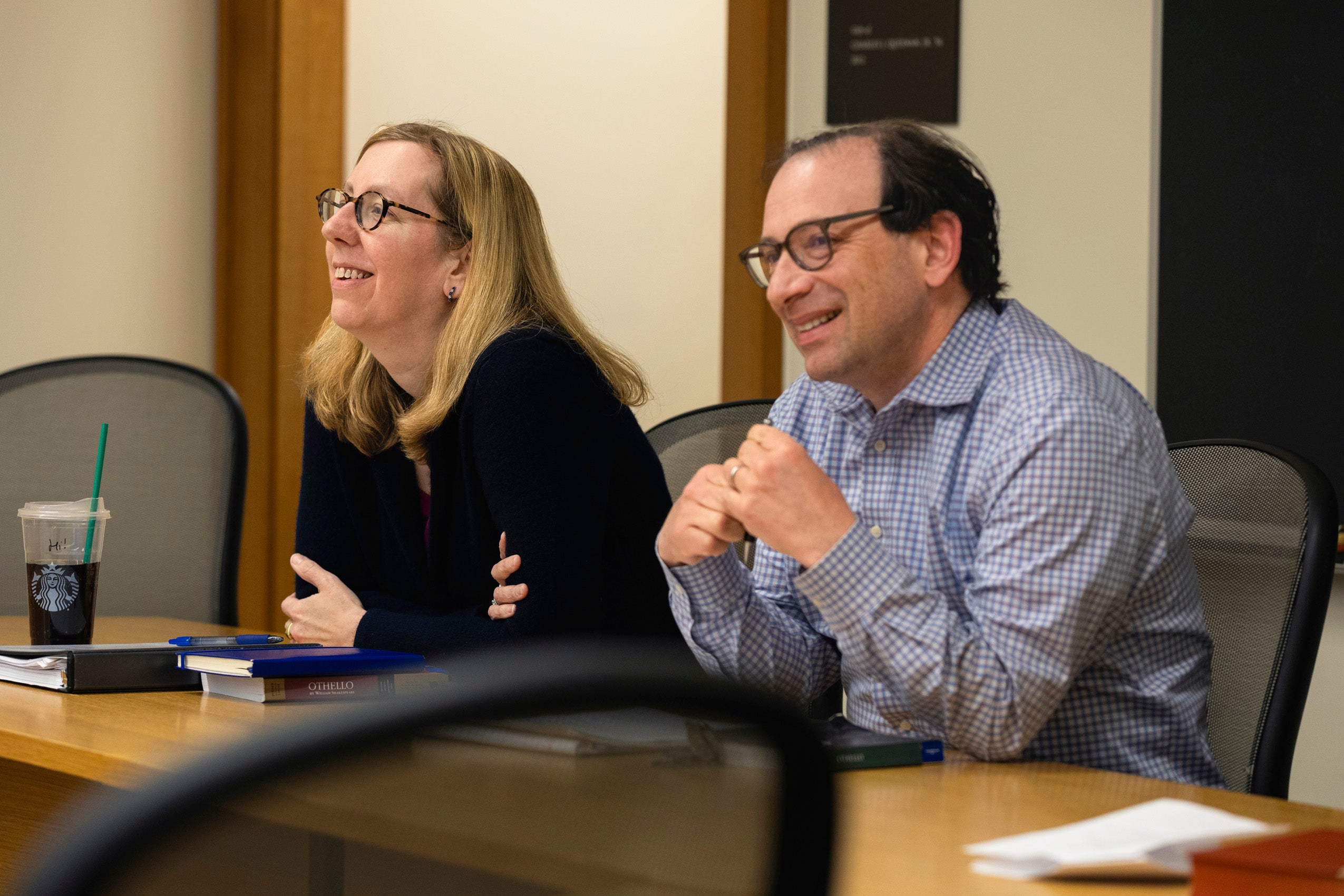
Other students noted how Shakespeare’s deep understanding of the human condition invited them into the minds of villain, victor, commoner, or king, illuminating the characters’ motivations. “They were alluding to a variation of the idea that the experience of walking in the shoes of others will make them more empathetic practitioners,” said Tobin, Ezra Ripley Thayer Senior Lecturer on Law.
The Bard was onto something that Harvard’s legal instructors hold dear: seeing both sides of an argument, the key to better understanding your opponent’s and your own positions. Stephenson often looks to the plays for inspiration.
The plays touch on a range of legal issues and concerns, many as relevant today as they were 400 years ago.
“One of the many wonderful things about Shakespeare’s plays is the way his characters give voice to such a diverse range of perspectives,” he said. “The plays force people to grapple with these different perspectives and see problems from different points of view. The works also touch on a range of legal issues and concerns, many as relevant today as they were 400 years ago.”
This past spring, the 21 participants in the seminar Shakespeare and Law took a deep dive into several plays, each focused on a legal theme such as justice and mercy, violence and the rule of law, and the right to rule. One two-hour discussion centered on the theme of evidence and proof, examining the tragedy “Othello,” about a man driven into a murderous rage engineered by someone he mistakenly believes he can trust. The wide-ranging classroom conversation touched on racism, the rule of law, misogyny, truth, evidence, justice, domestic violence, and how you know what you know and when you know it.
For Pavani Bhat LL.M. ’20, a human rights practitioner who was auditing the class, the question of evidence in the tragedy called to mind her previous work investigating military atrocities. When building a case in that field, it was critical to interview as many people as possible, she said, unlike the play’s namesake, who took the word of one trickster, Iago, as fact before visiting jealous revenge on his innocent wife. Relying on one person to give you the truth is “never enough,” said Bhat. “There’s never a good answer for how many people you need to interview or collect testimonials from, or how much evidence you need to prove something happened.”
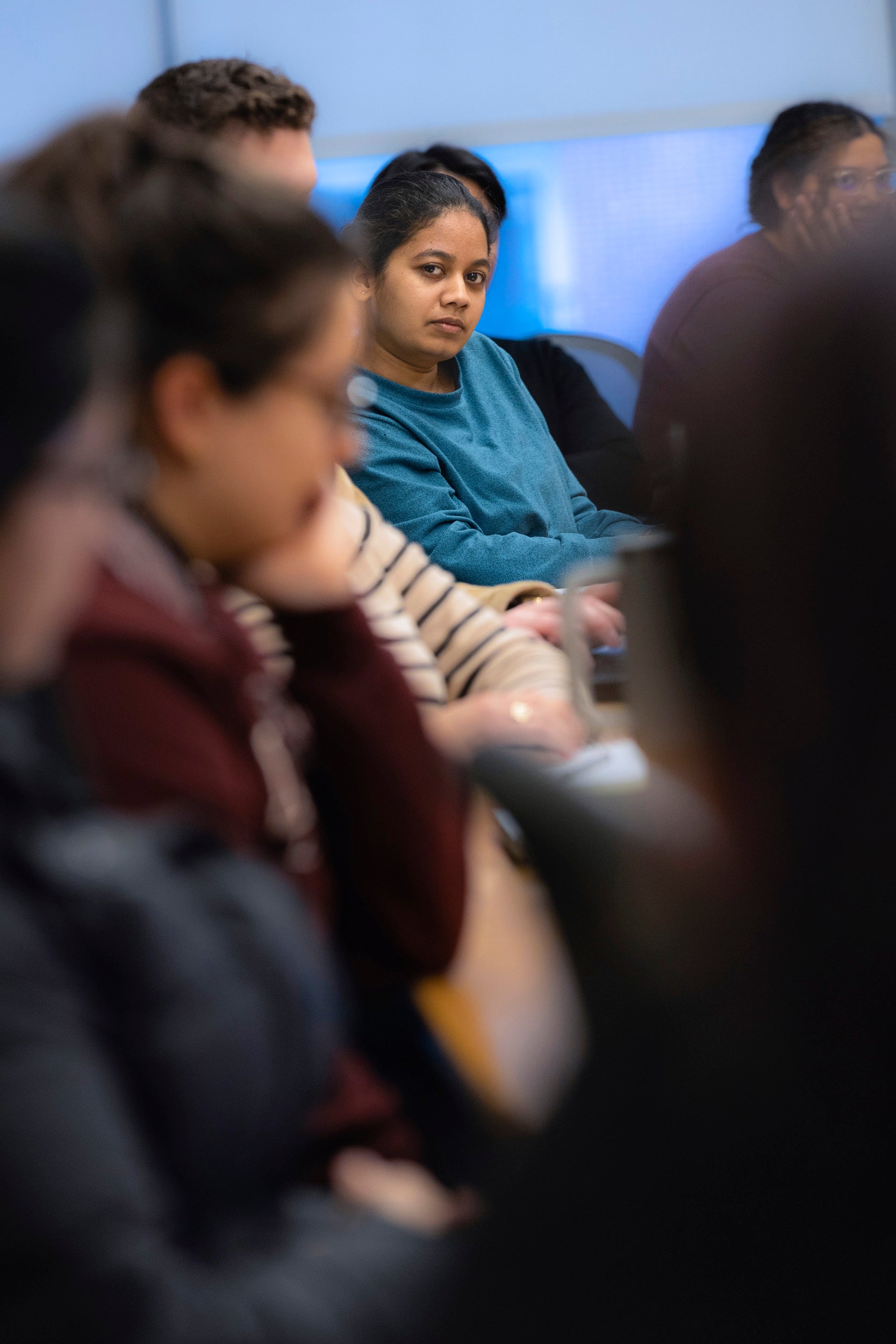
For another student, Lisa Campbell ’25, a former professional actor, the class allowed her to reconnect with texts she has long loved. The legal angle had seemed at first almost secondary, but then it opened her eyes, enriching her “understanding of justice as a concept, and what it means to look for the right legal or moral answer.”
Campbell pointed to Shakespeare’s “Henry V,” explaining that she began to see the ruler in a different light after studying the play in class. Campbell found the king’s reasoning for invading France both unclear and unlawful, likening him to a current leader embroiled in an ongoing war. “I thought, Henry is like Putin,” said Campbell, referring to Russia’s president. Henry “has no justification,” she said, other than perhaps feeling snubbed by the Dauphin, “but that is not a justification for war.”
While people in modern times may seem endlessly mired in lawsuits, Elizabethan England was apparently no better.
“The passion of Elizabethans for law was impressive compared even to present-day American litigiousness,” notes the introduction to Bradin Cormack, Martha C. Nussbaum, and Richard Strier’s “Shakespeare and the Law: A Conversation among Disciplines and Professions,” a text for the course. One estimate suggested that “toward the end of Queen Elizabeth’s reign an English population of around 4 million persons was involved in 1 million actions per year.”
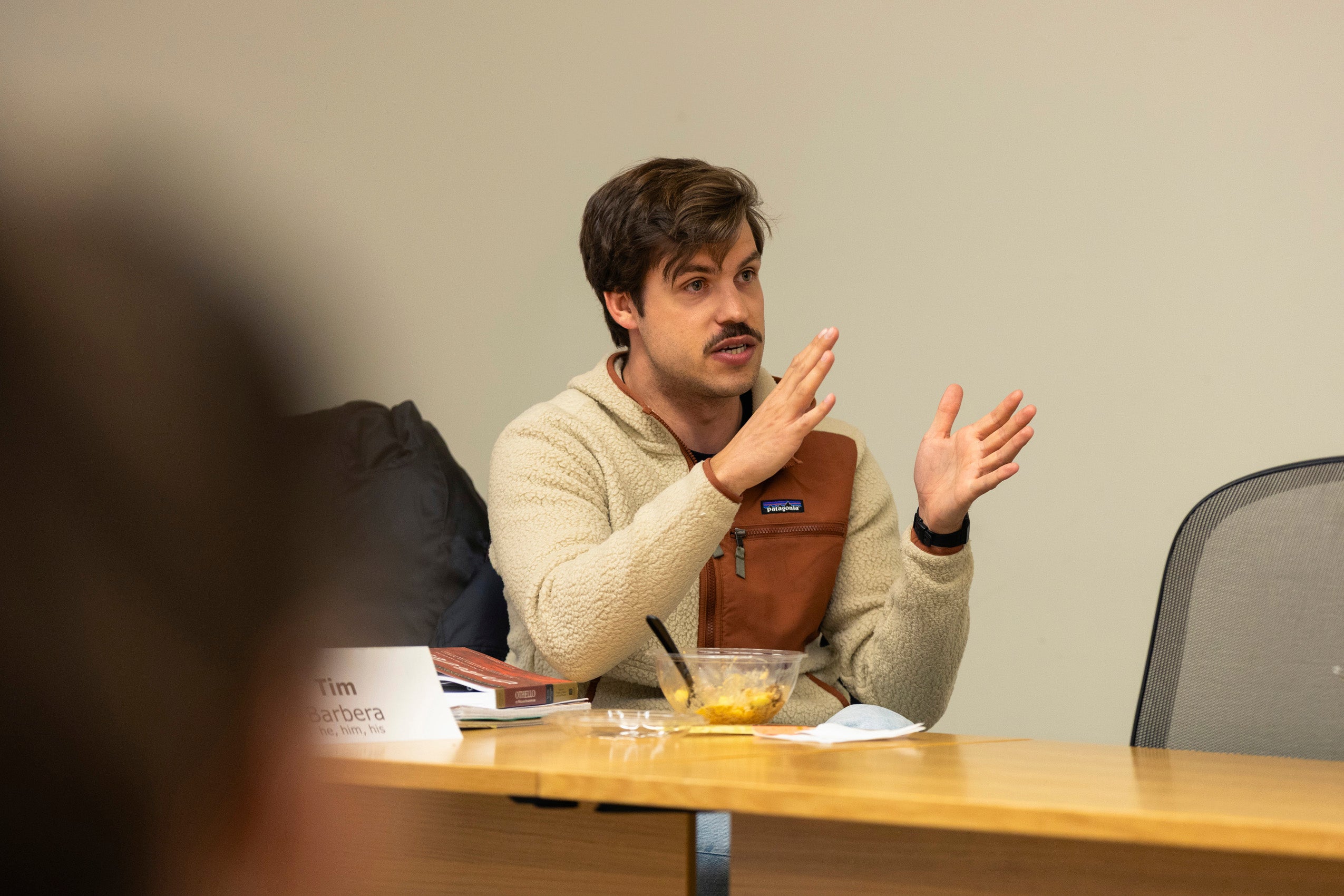
Shakespeare’s own life provides examples. After defaulting on a contract, his father lost family property that would have passed to his son William, in a case that dragged on for years. The playwright brought several suits, including two in the early 1600s — one against a neighbor, and another for money he argued he was owed. Much that is known about him today is gleaned from court and registrar records and wills. Some analysts speculate he even may have been educated in the law. But whether or not he had any formal training, it’s clear the dramatist understood the substance and subtlety of legal proceedings, their import in society, and their impact out on the stage.
That understanding made an impression on Tim Barbera ’25. He studied Shakespeare while an English major at the U.S. Air Force Academy but never felt he truly connected with the works. He was attracted to the Harvard Law class because of its interdisciplinary nature, he said, and by the idea that it might allow him to think more critically about how the law affects “real people and their lives.”
Barbera pointed to the various quasi-trials that appear throughout “Othello” and other plays, in which one character makes accusations against another outside an official legal proceeding. They remind him of how people today often cite their right to say anything as protected free speech without a full understanding of the law, he said, “even though the law doesn’t technically apply in that way in many instances.”
Students in the course can actually thank Stephenson’s daughter for its existence. When she was 10, her father took her to a free outdoor performance of “A Midsummer Night’s Dream.” “She loved it,” Stephenson recalled, “and it became our father-daughter thing.” By now they have seen all the plays together save for “Henry VI, Part 1.”
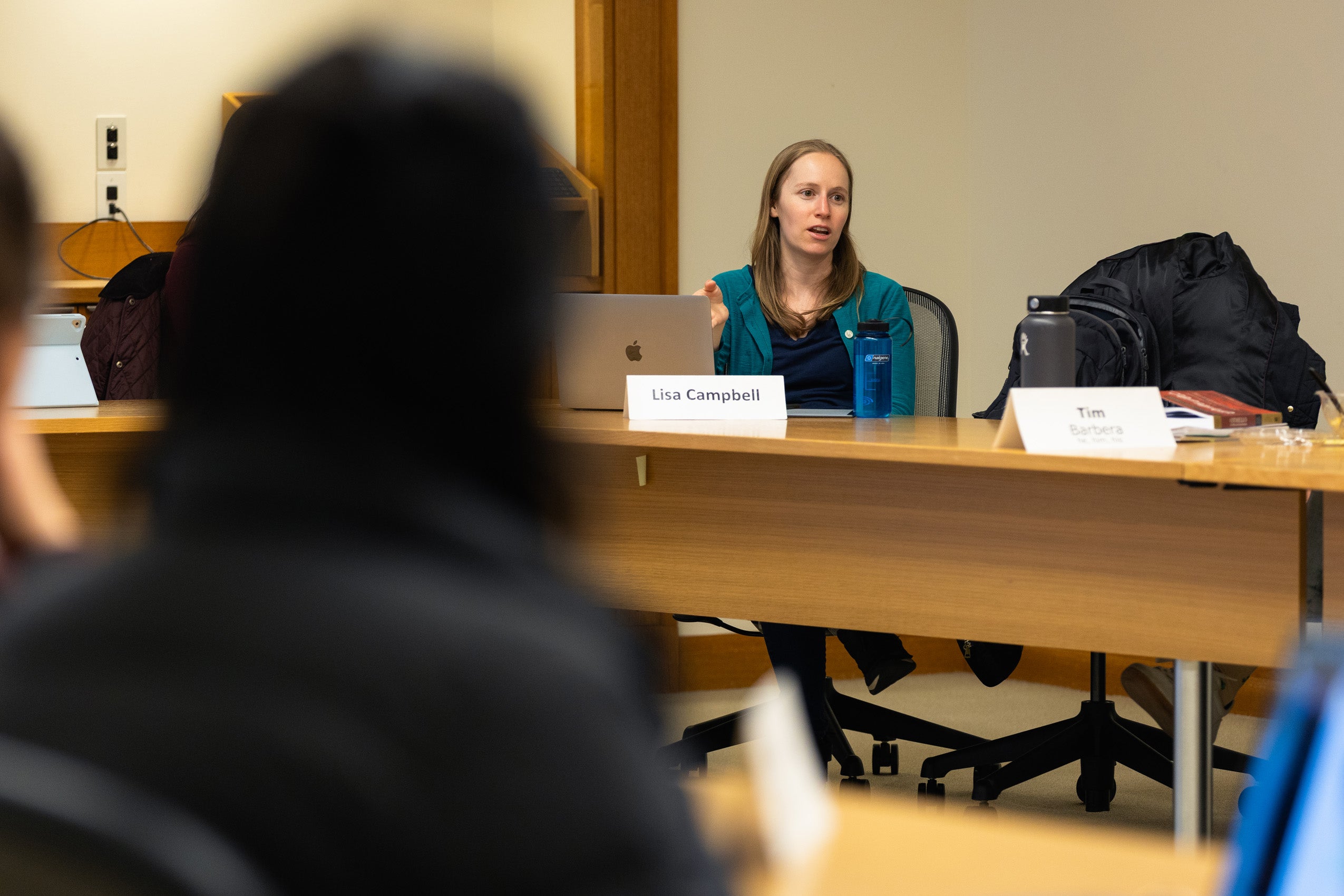
Early in their Shakespeare journey, when his daughter started asking him questions he couldn’t answer, Stephenson turned to a colleague for help: Tobin, whose father is a retired English professor and a Shakespeare expert. The four would meet and talk about the plays. Not long ago, Stephenson’s daughter, now in college and president of her school’s Shakespeare club, encouraged her father to teach a class on Shakespeare and the law. He accepted the challenge and immediately asked Tobin to be his teaching partner.
As the pair developed the syllabus, they knew they wanted to incorporate more than just the written texts. Central to this past year’s course was a list of video performances of the plays produced by the BBC, the Globe Theatre, the Royal Shakespeare Company, and other outlets. In addition to reading the plays, students were encouraged to select a version of each production to watch before class so they can engage with the works in the way Shakespeare originally intended. Stephenson and Tobin hoped their classroom conversations would mimic the experience of seeing a show or movie with friends and then debating its merits or missteps over a drink or a meal. Mission accomplished.
“We thought the discussions would be a success if it felt like a group of smart lawyers went to see a Shakespeare play and then went to dinner afterwards and talked about it,” said Tobin, “and that’s what it has been since we started. The students come to the plays with great range of perspectives and levels of experience, and so do we, and we’re having a conversation through those shared experiences, and it’s been so much fun.”
